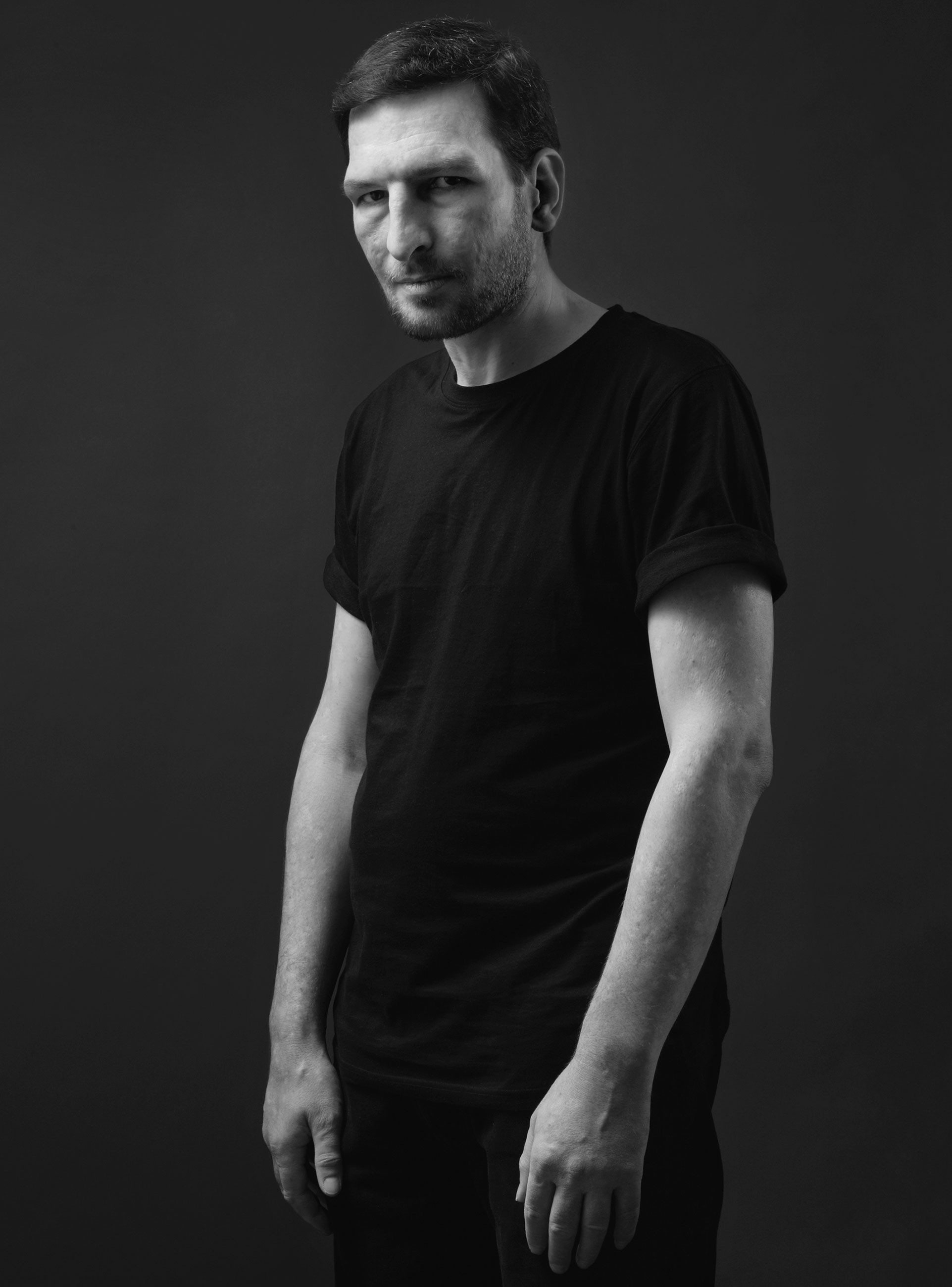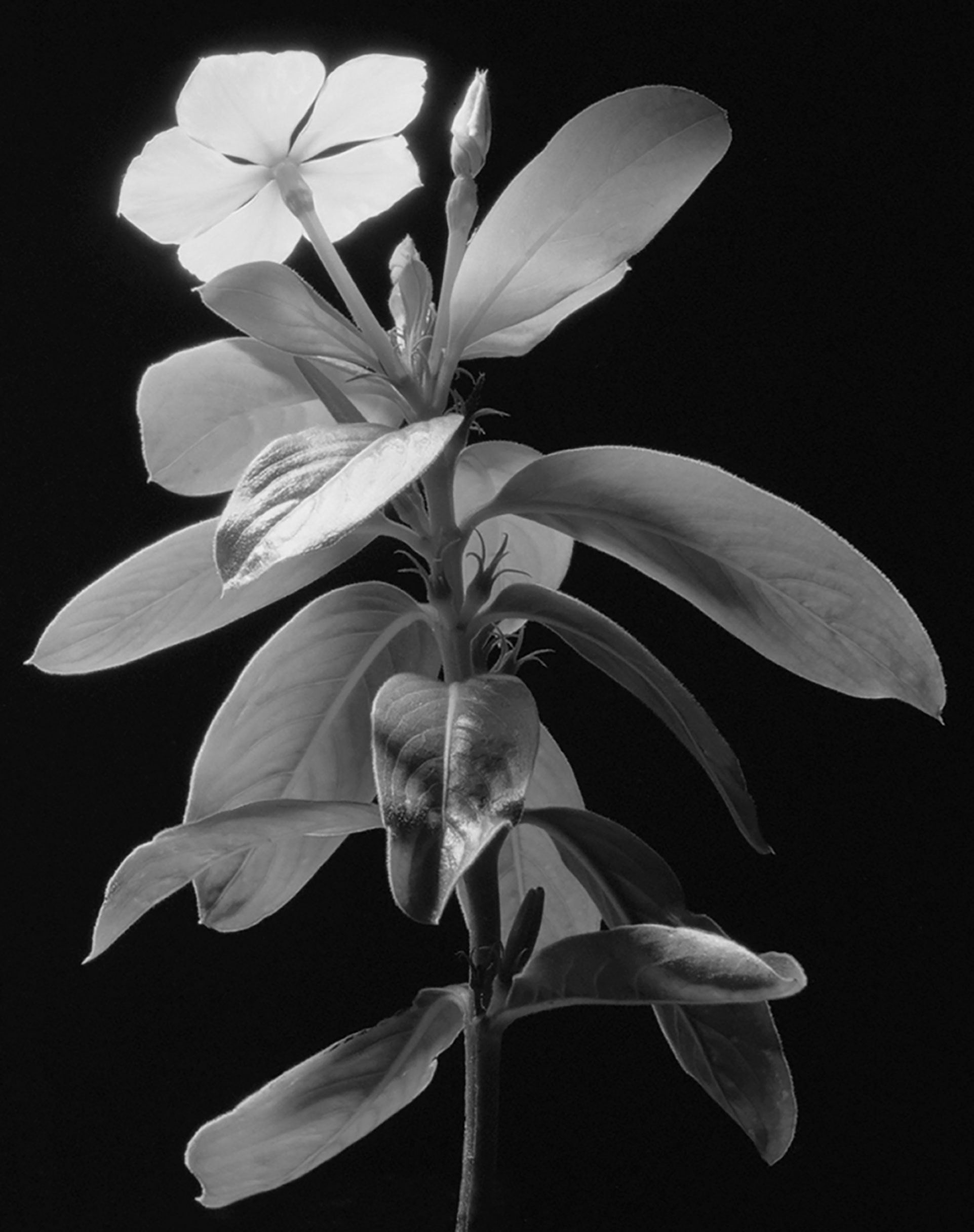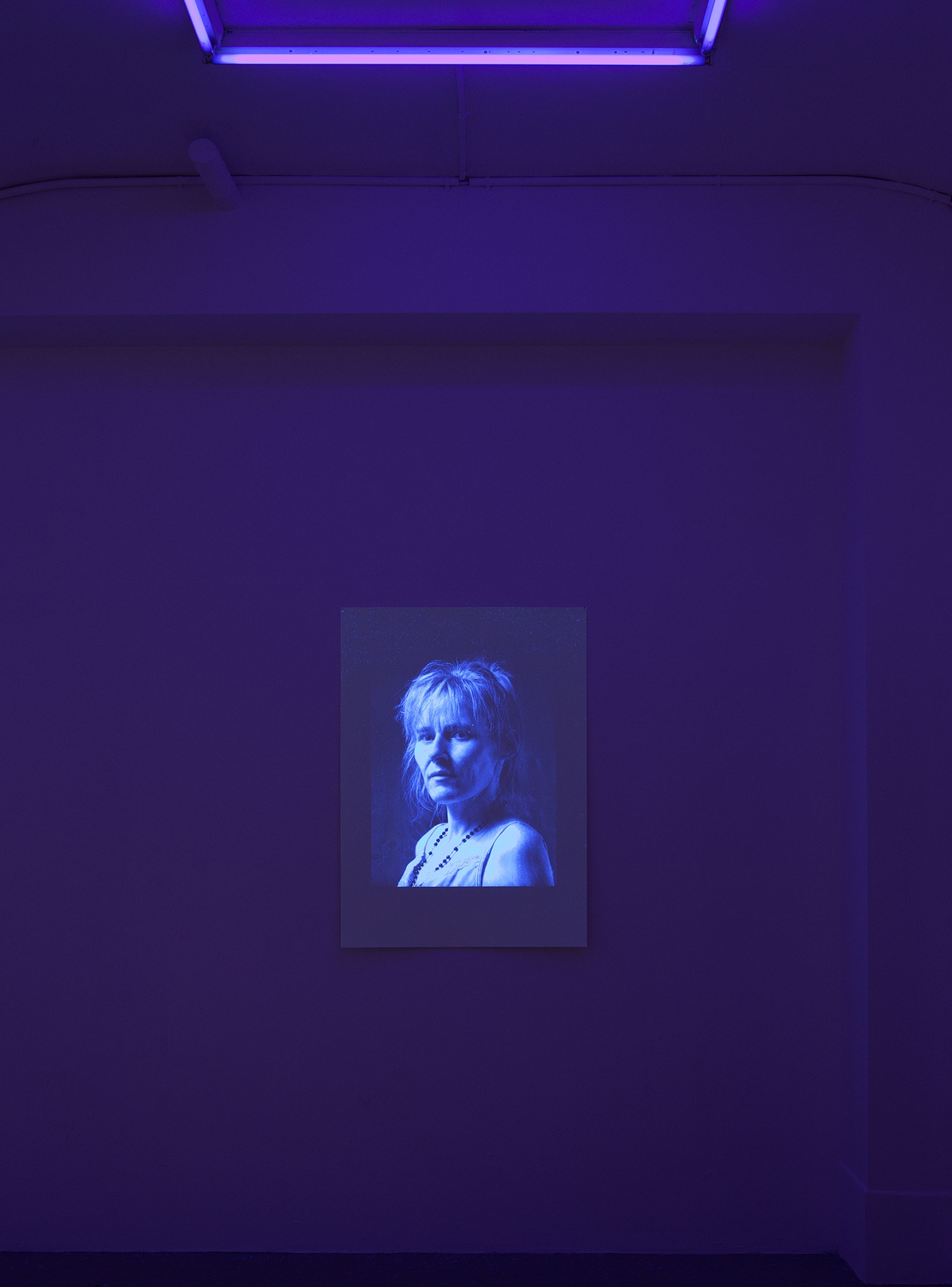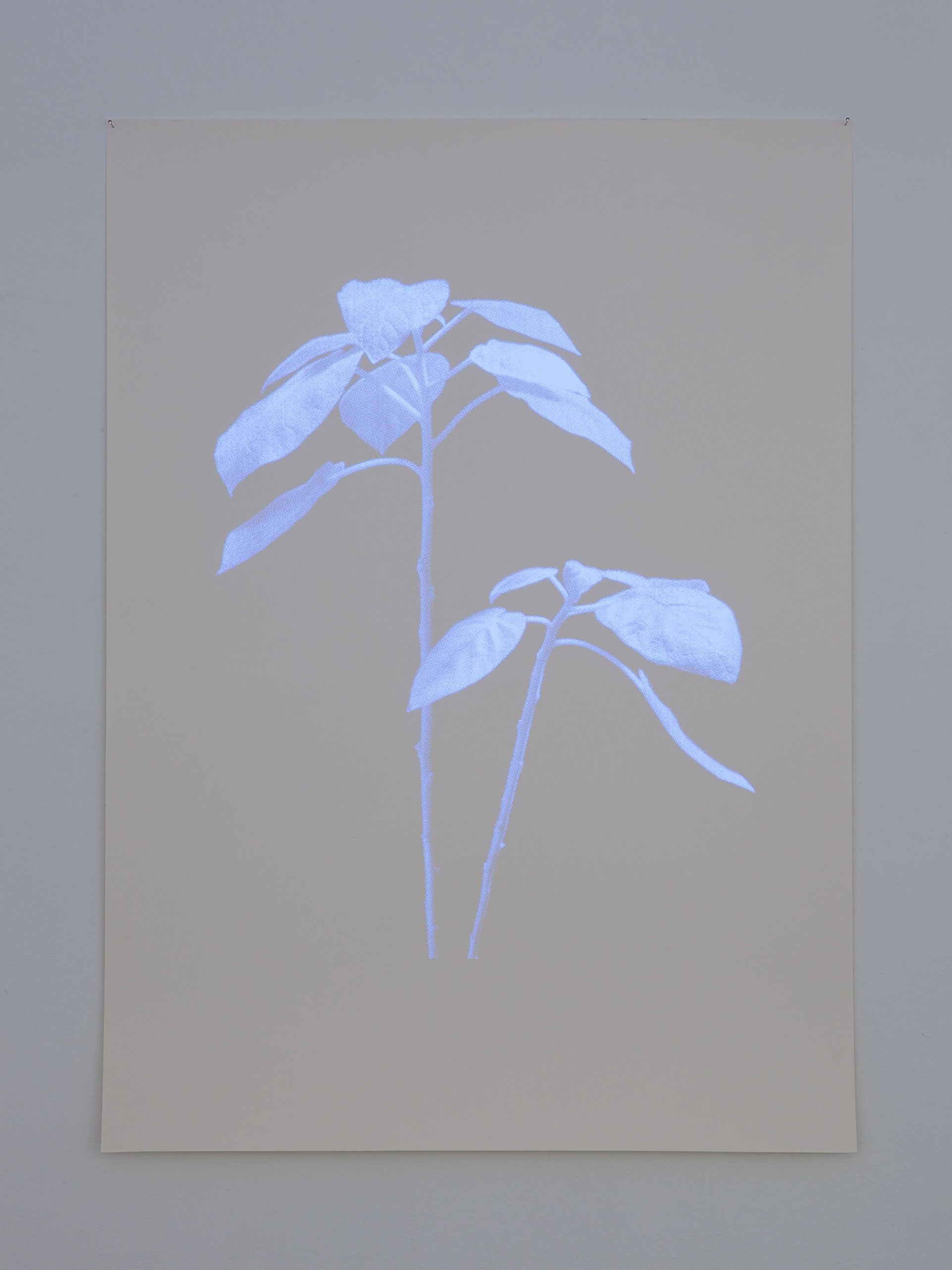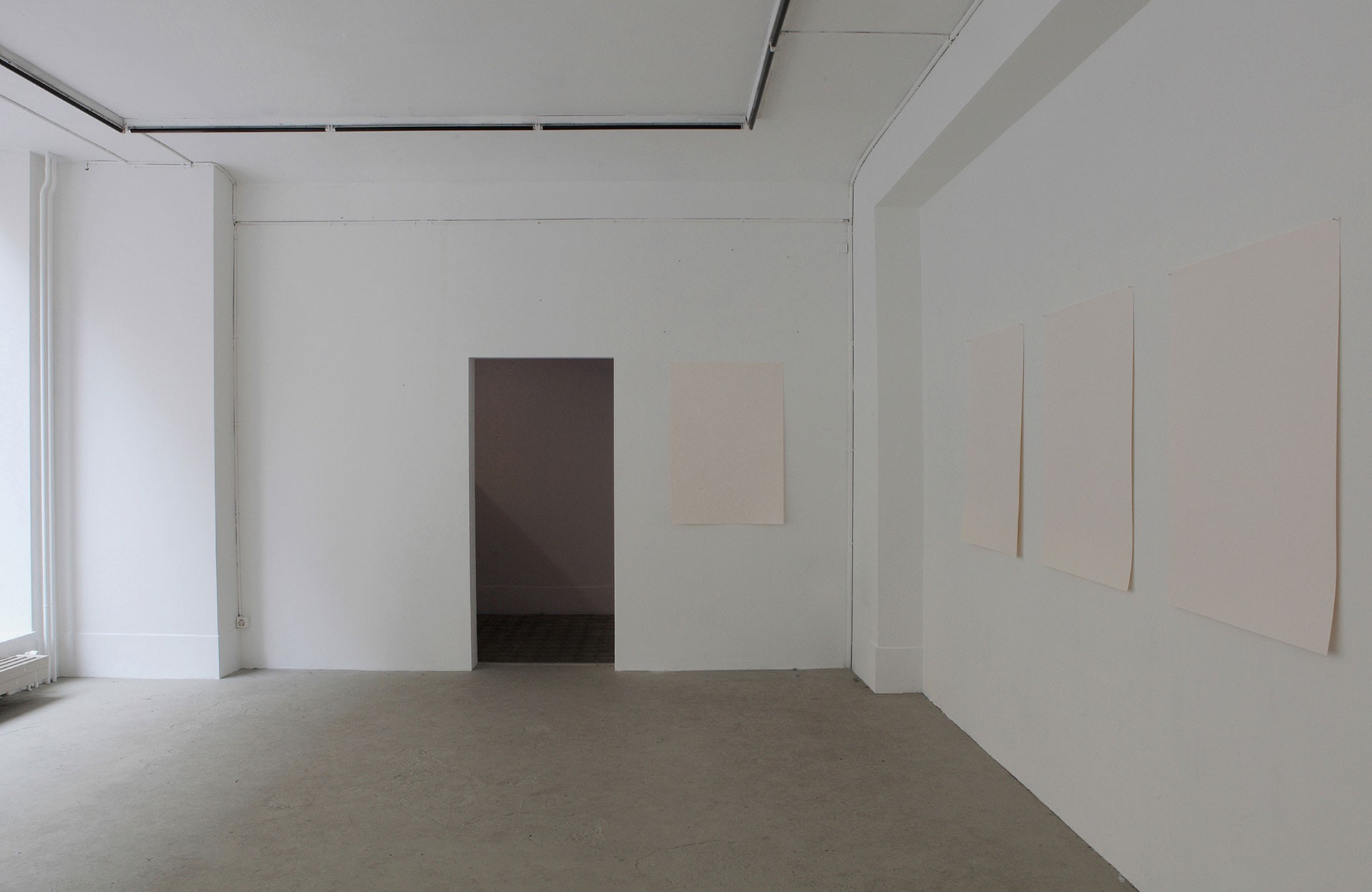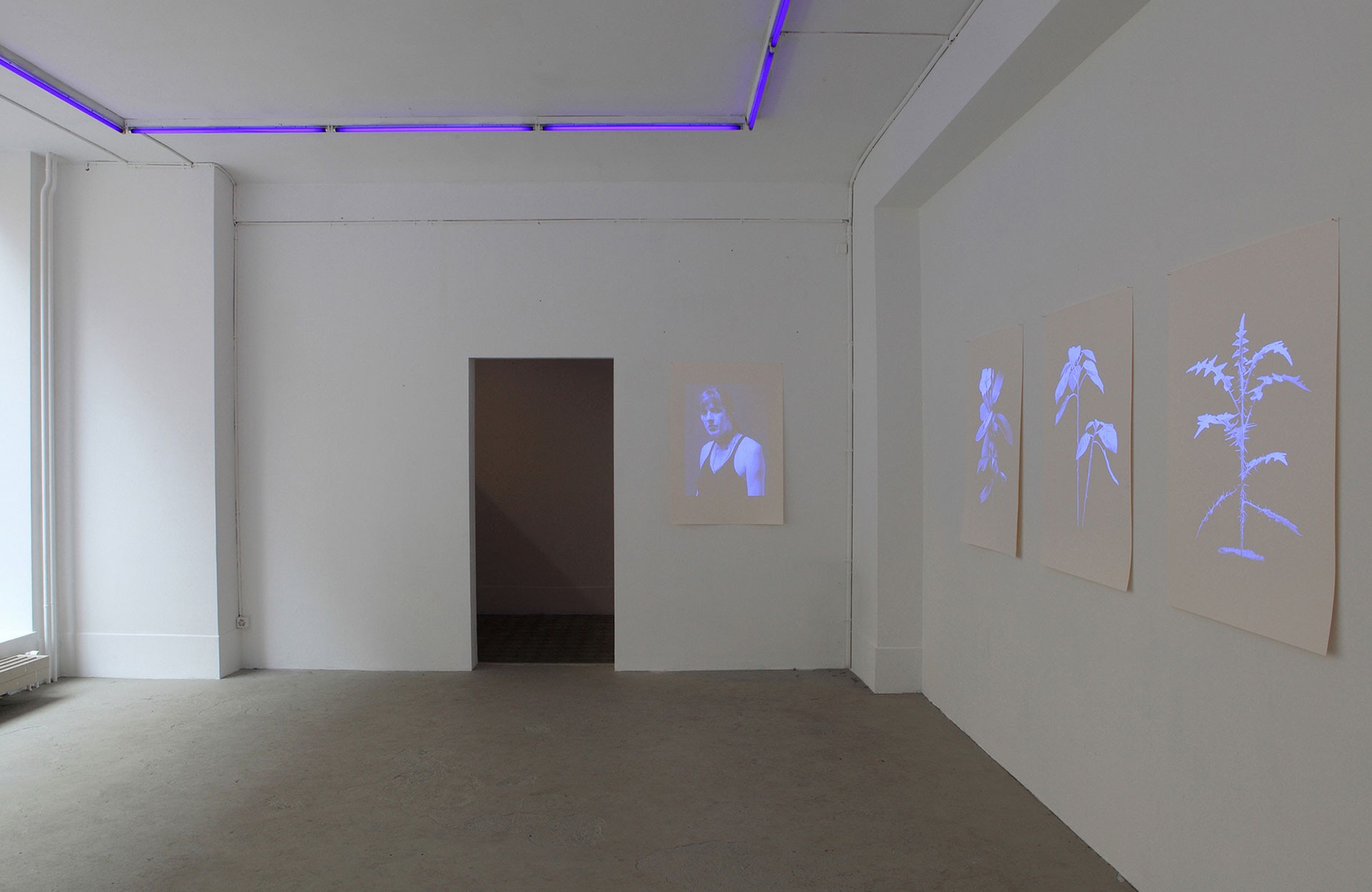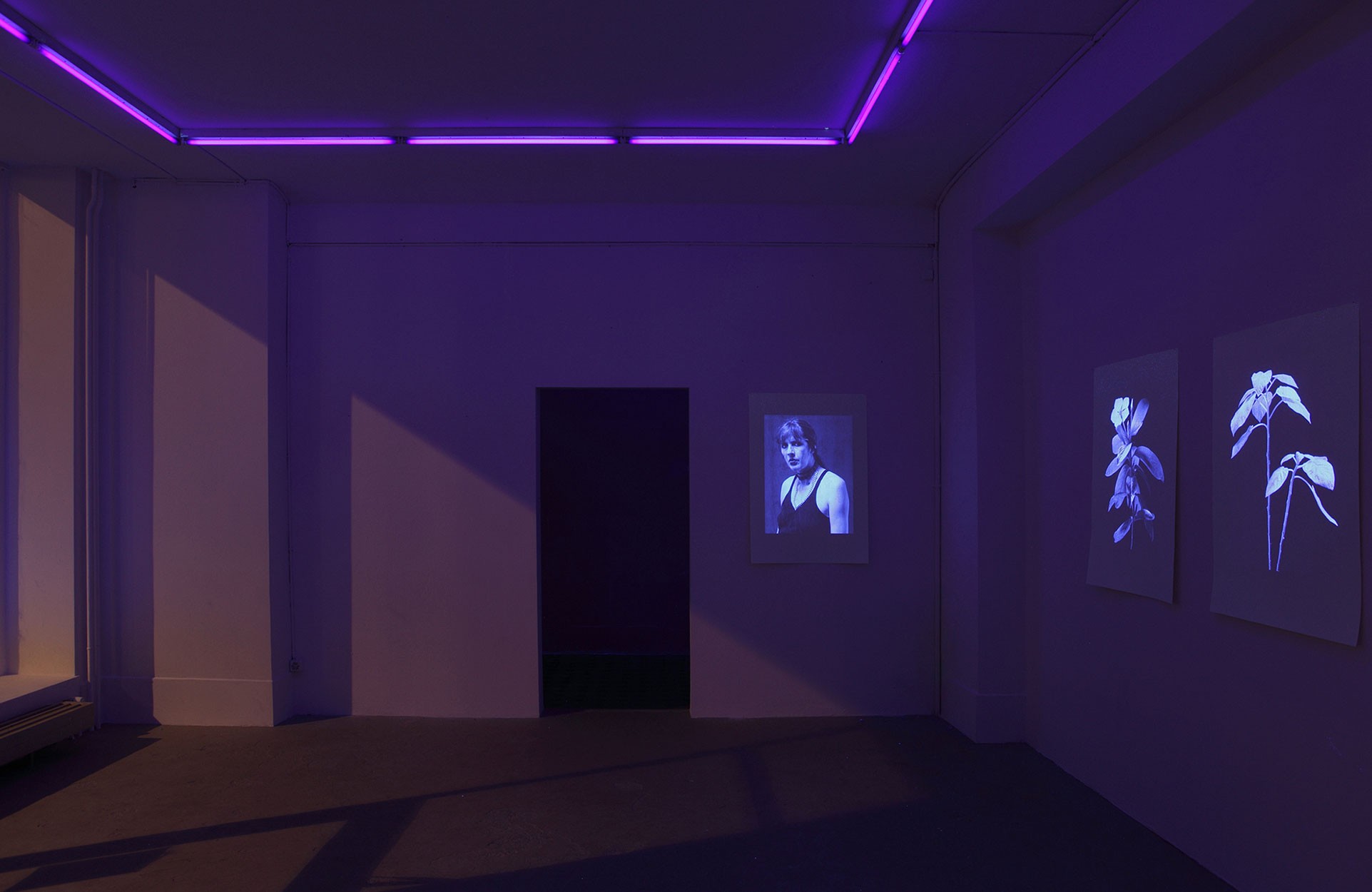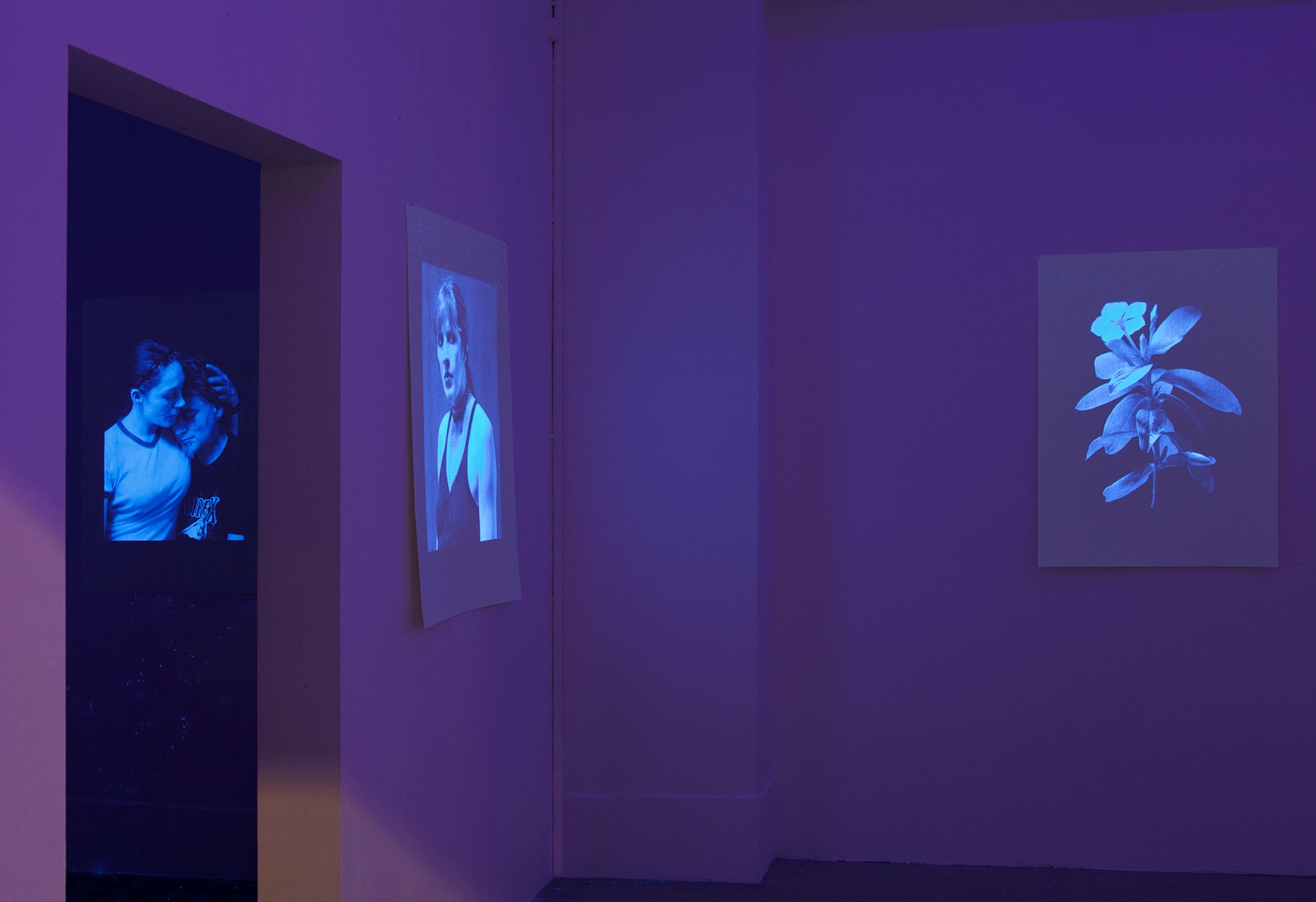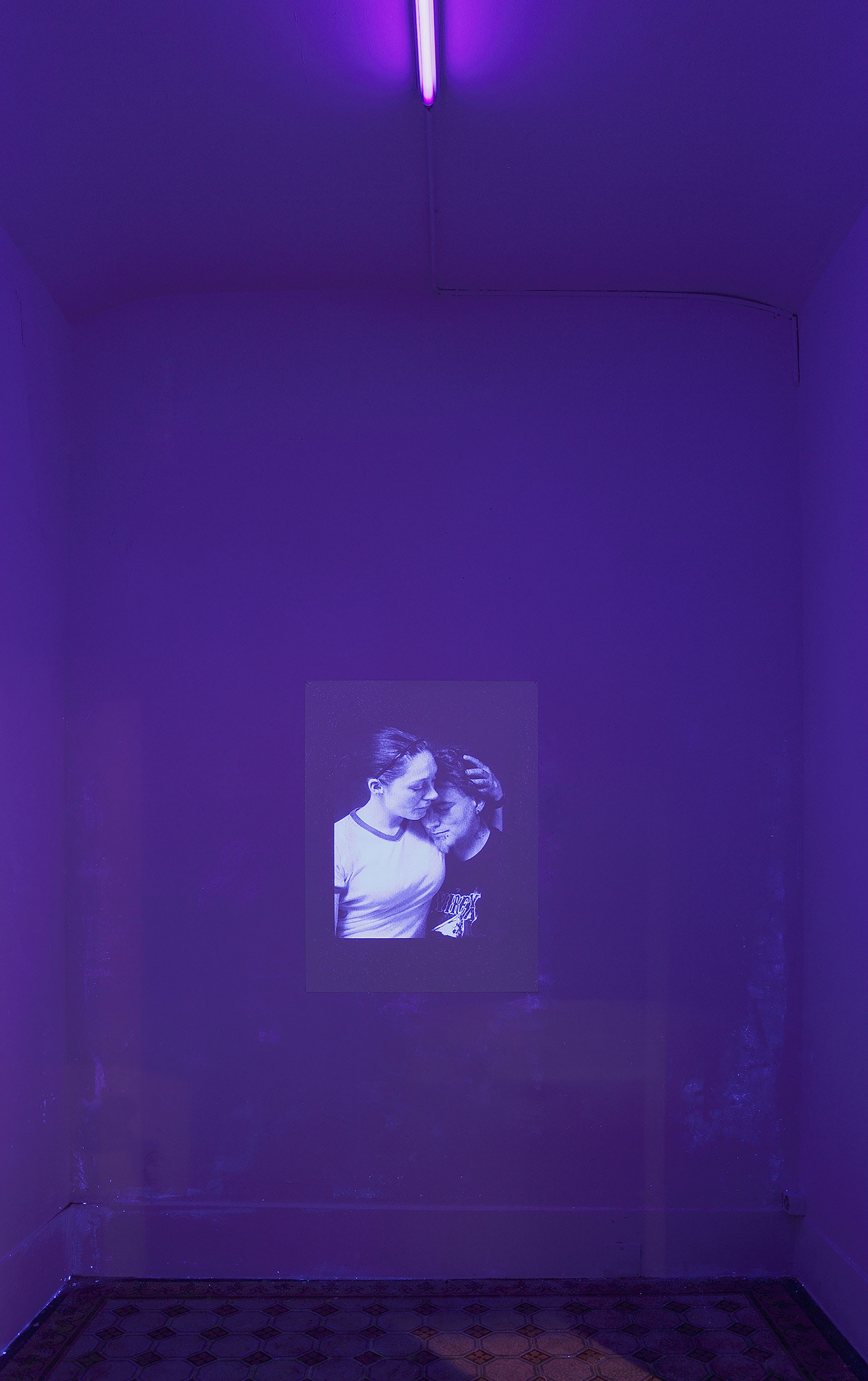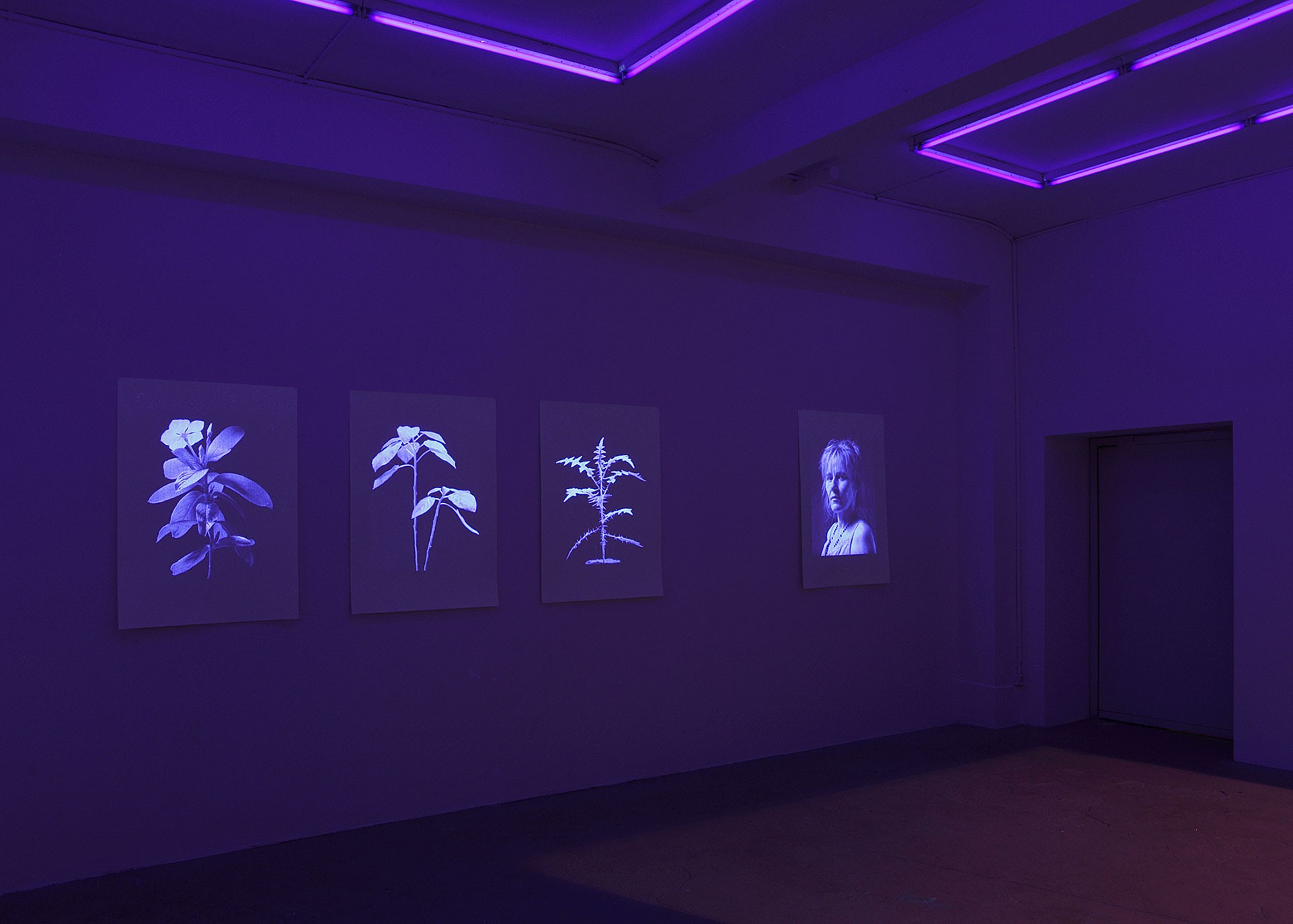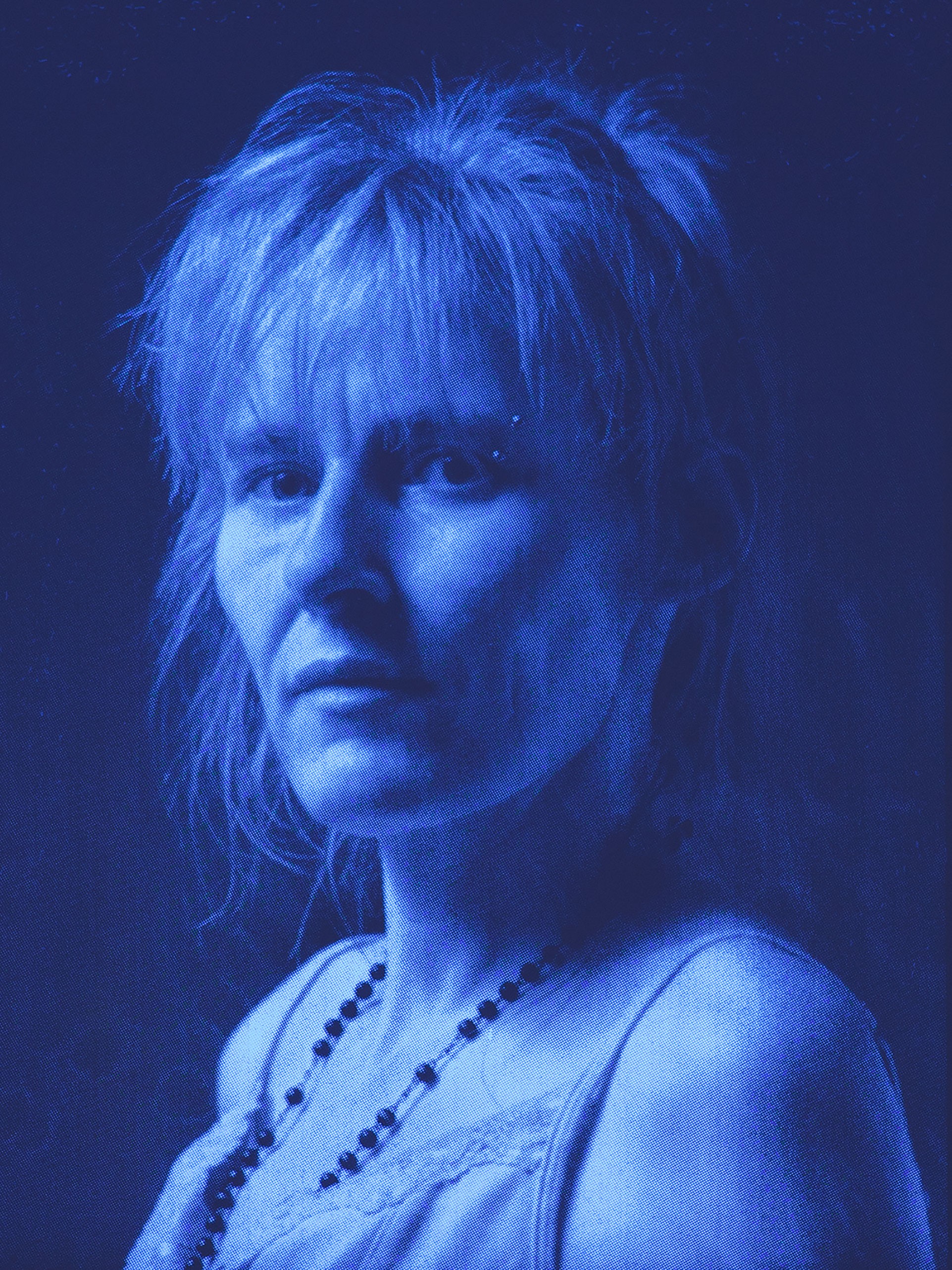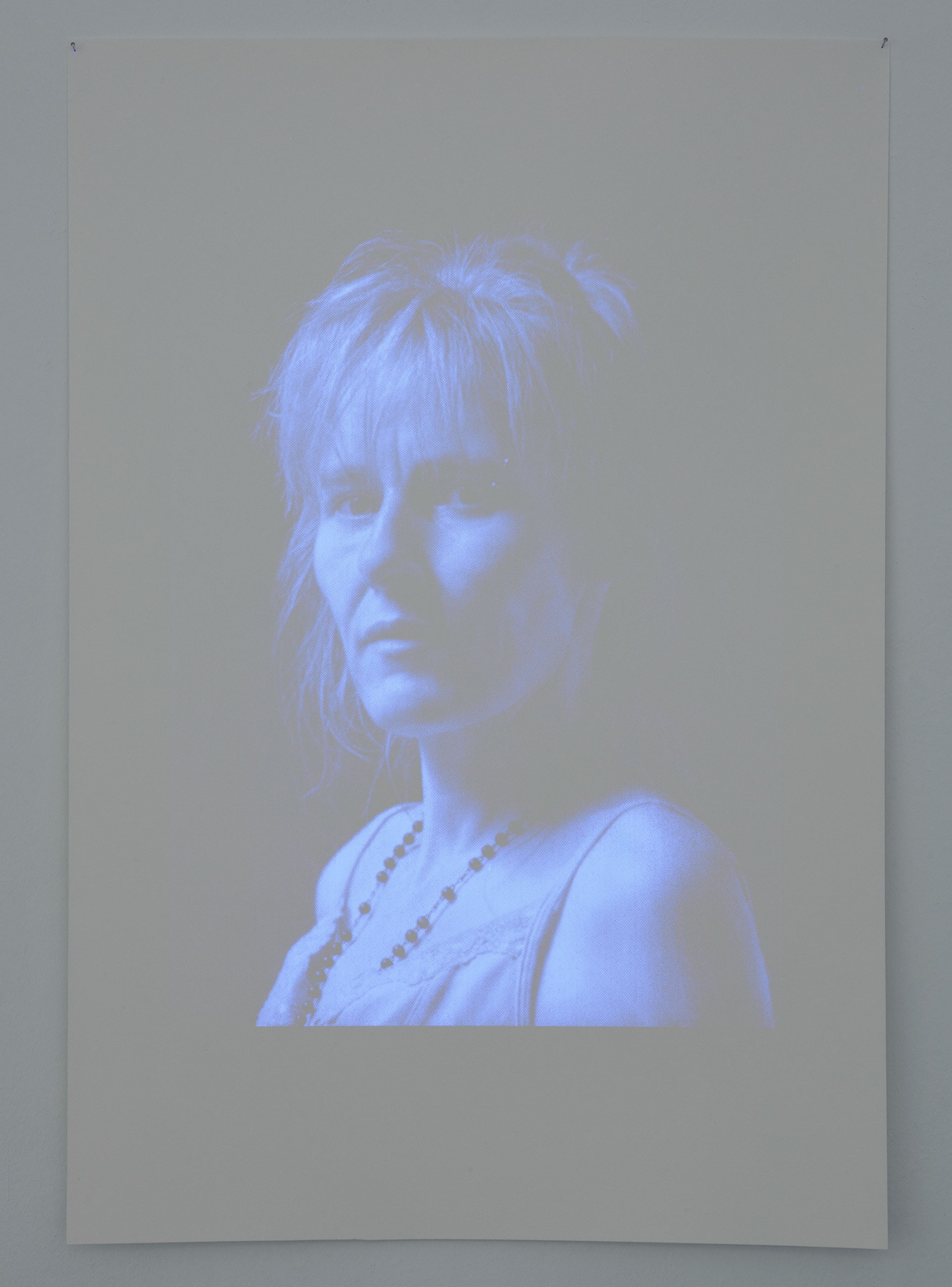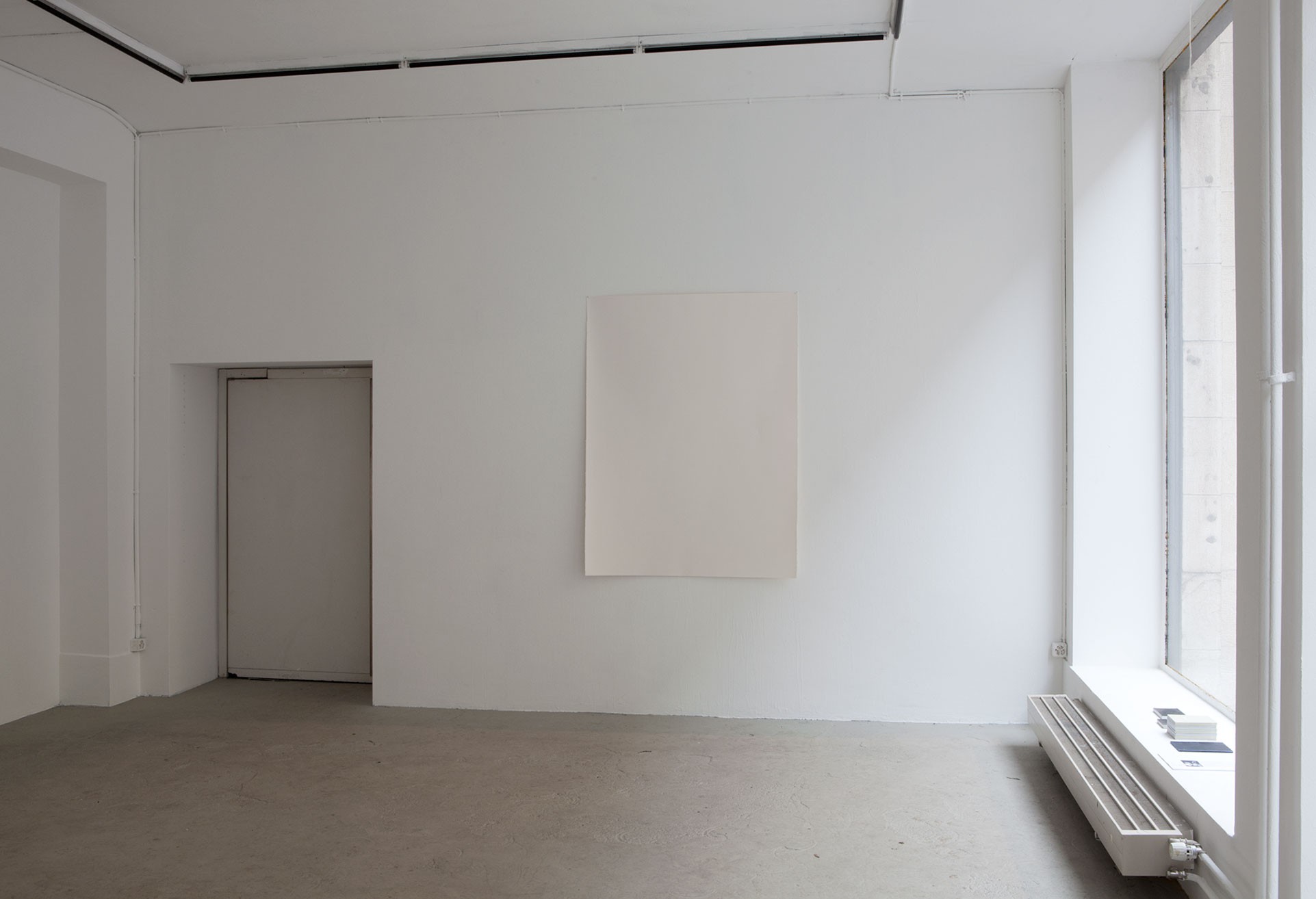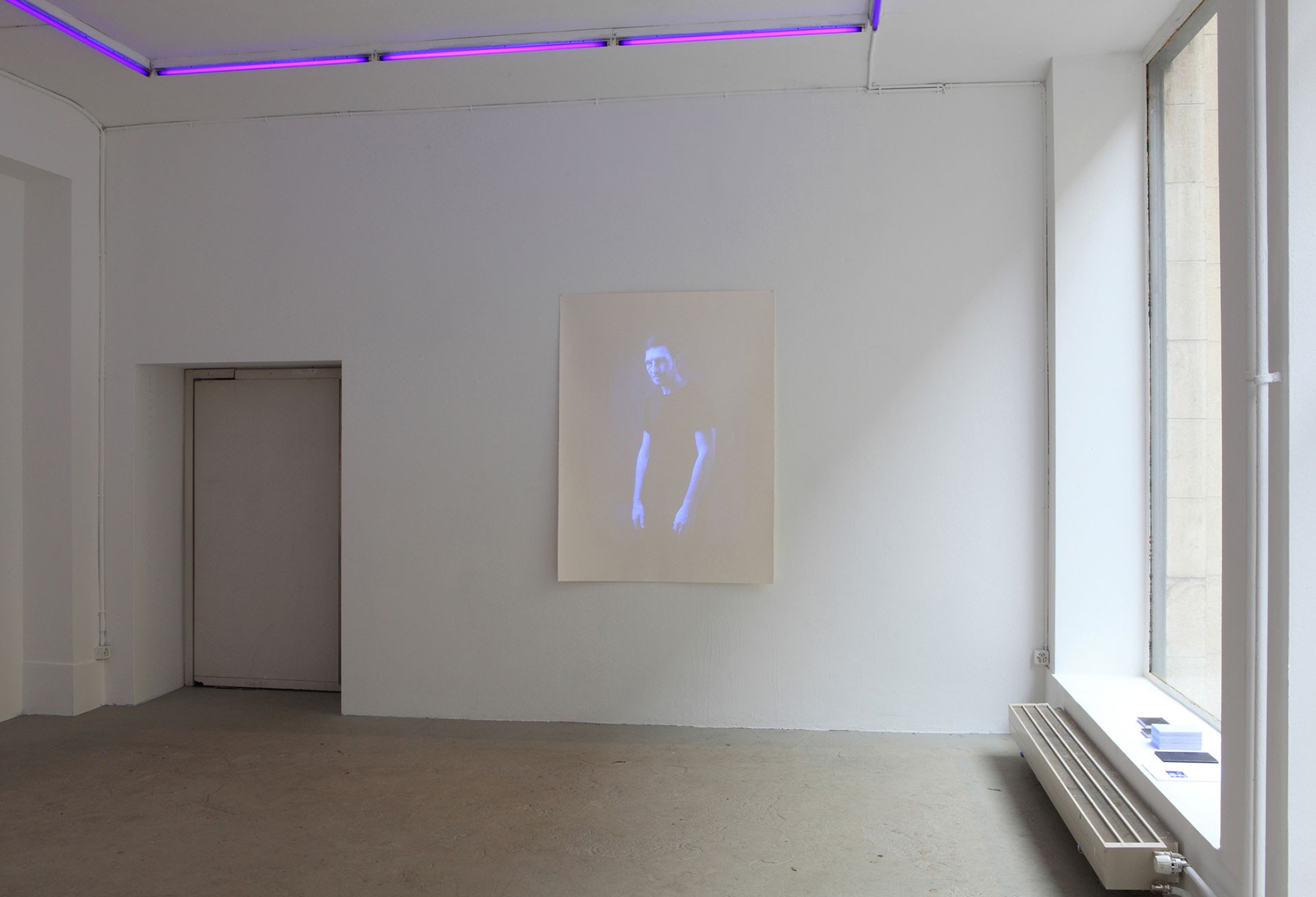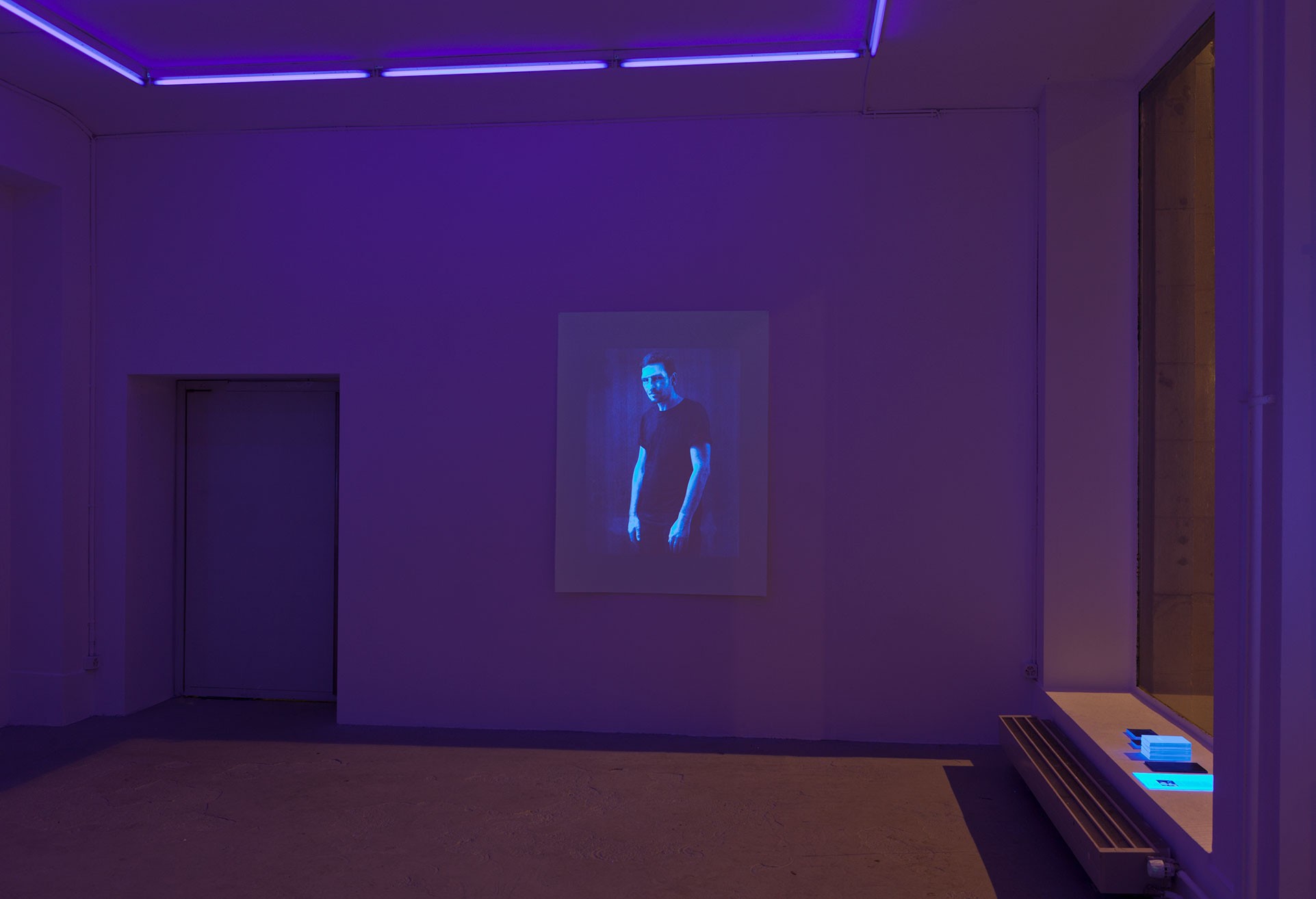Schwarzes Licht, 2010
“Large leaves of immaculate whiteness are suspended on white walls. Neons emitting a black light are buzzing on the roof. As the hours pass and the darkness intensifies, the light from the tubes begin to dominate and to gradually reveal silkscreens printed on the paper. Portraits of drug addicts begin to appear opposite the solanaceous plants. In the manner of Atropos—also the name giver to the deadly nightshade Atropa belladonna—the nature and intensity of the light source structures the cycle of appearance and disappearance of the images in Schwarzes Licht. The spectator’s visual experience is therefore subject to time. While visible at night, these human and vegetal bodies vanish in the daylight. This inversion of visibility/invisibility and day/night refers directly to the opposition of life/death. These latent images reveal themselves to those patient enough to wait for them—or they surprise those who aren’t expecting to see them.” (Noémie Richard)
